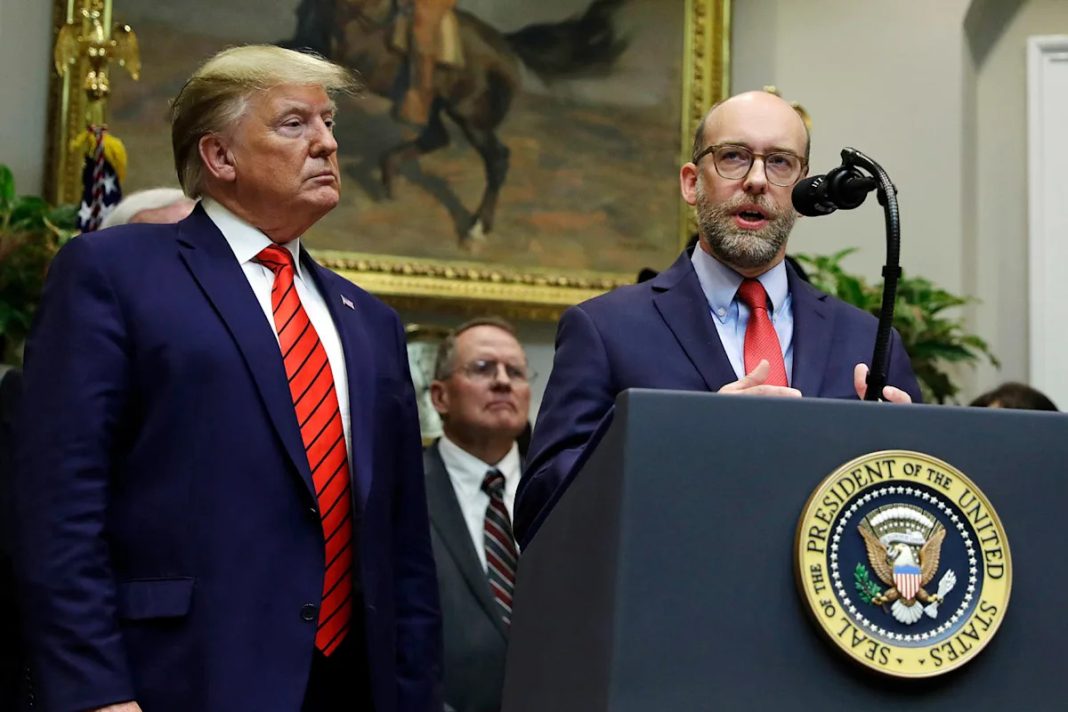U.S. District Judge Amir Ali’s decision could not have been clearer: “There is not a plausible interpretation of the statutes,” he wrote, “that would justify the billions of dollars they plan to withhold.” The word “they” referred to the State Department and, more importantly, President Donald Trump, who is trying yet another way to ignore budget laws. The administration’s latest tactic is what’s called a pocket rescission. Even Republicans have called this an “attempt to undermine the law,” as the White House impounds funds — ironically — by abusing a law called the Impoundment Control Act.
When Congress passes a law and it’s enacted, it’s then the president’s job to carry out that law. If the president doesn’t like the law, he can veto it or else ask Congress to amend or repeal it. Simple enough. What a president can’t do is sign something into law and then immediately ignore parts of it. But that’s exactly what Trump is doing.
The president and his budget director, Russell Vought, have argued that spending laws are optional, and that the president always has the power to sign spending into law and then choose to not do it. Trump and Vought insist, for instance, that a law funding $47 billion of cutting-edge cancer and other biomedical research is optional — that the president can only spend half of the money, instead of vetoing it and demanding Congress send him a bill with only half as much money.
The act of not using all the money the legislative branch has passed — or pausing the money altogether — is called impoundment. Under the Impoundment Control Act (ICA), the president is allowed to ask Congress to rescind funds — to pare back unused money. Where otherwise allowed, the president may freeze funds for 45 days while Congress considers the president’s request.
The Trump White House incorrectly argues it has the right to pause any funds included in that rescissions request no matter what — even if pausing them for 45 days would lead to that money lapsing, being no longer usable since the time in which it was allowed to be used had run out. At the end of August, Trump and his team decided to send up a new rescissions request with the stated intent of letting the funding lapse.
That’s called a pocket rescission and it’s what Trump just did with another $4.9 billion of foreign aid. Under Trump and Vought’s argument, even if Congress votes down the request, the executive branch can still pause the money for 45 days until it lapses.
This is illegal. In a 2018 report, the Government Accountability Office concluded that “the statutory text and legislative history of the ICA, Supreme Court case law, and the overarching constitutional framework of legislative and executive powers provide no basis” for Trump and Vought’s interpretation. In case that wasn’t clear enough, a GAO blog post from August answered the question “Are pocket rescissions legal?” simply and without hesitation: “No.”
Even Republican lawmakers have criticized the administration’s move. “Any effort to rescind appropriated funds without congressional approval is a clear violation of the law,” Sen. Susan Collins, R-Maine, said, while Sen. Lisa Murkowski, R-Alaska, said, “I strongly object to the Office of Management and Budget’s unlawful attempt to pursue a nearly $5 billion pocket rescission.”
On Wednesday, Judge Ali issued an injunction, requiring the White House to spend roughly $12 billion in congressionally appropriated foreign aid before the end of the month. Late Friday, the D.C. Circuit Court of Appeals denied the Justice Department’s request to stay the injunction. The case will eventually end up at the Supreme Court. There, the justices will finally rule on whether the president is an appropriations king — whether he can unilaterally ignore budget laws and arbitrarily cut spending programs without congressional approval. The White House’s argument is that there’s no law Congress can pass that actually guarantees funding, that it’s all optional, up to the whims of the president. If the Supreme Court were to green-light this, it would put at risk everything in the government that the American people rely on.
But in a very real sense, there’s no difference between a pocket rescission and any other impoundment. Whether a program is included in the formal rescissions request or is being quietly impounded, either way the money doesn’t get spent. The pocket rescission is just a beacon meant to draw our attention. Trump wants us to focus on the foreign aid impoundments — a shiny object he’s illegally deleting via a pocket rescission — so that we forget about the quiet impoundments of cancer research and preschool funding. Taken together, Trump is now attempting seemingly the most expansive, illegal set of budgetary actions of any president in U.S. history.
This article was originally published on MSNBC.com

